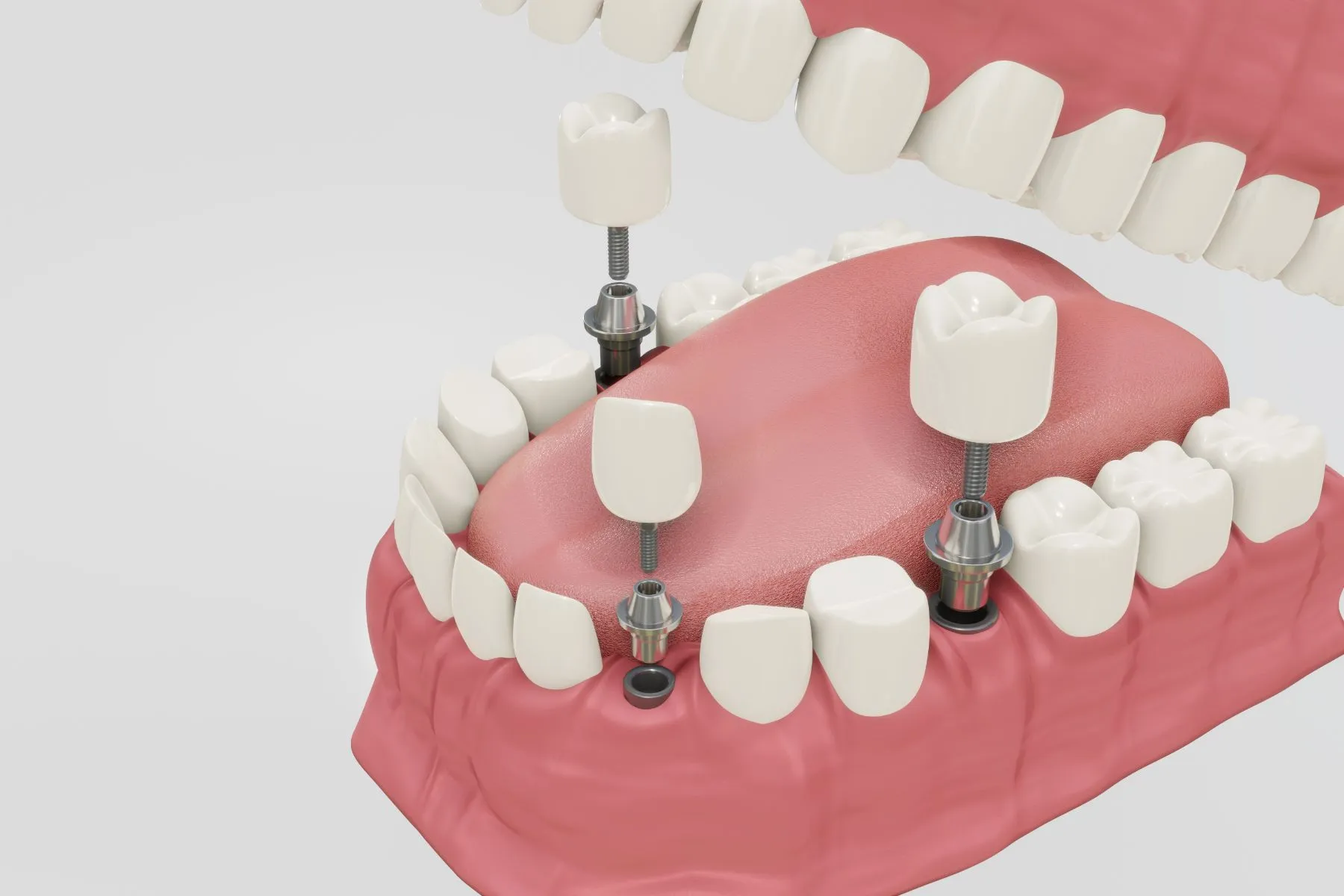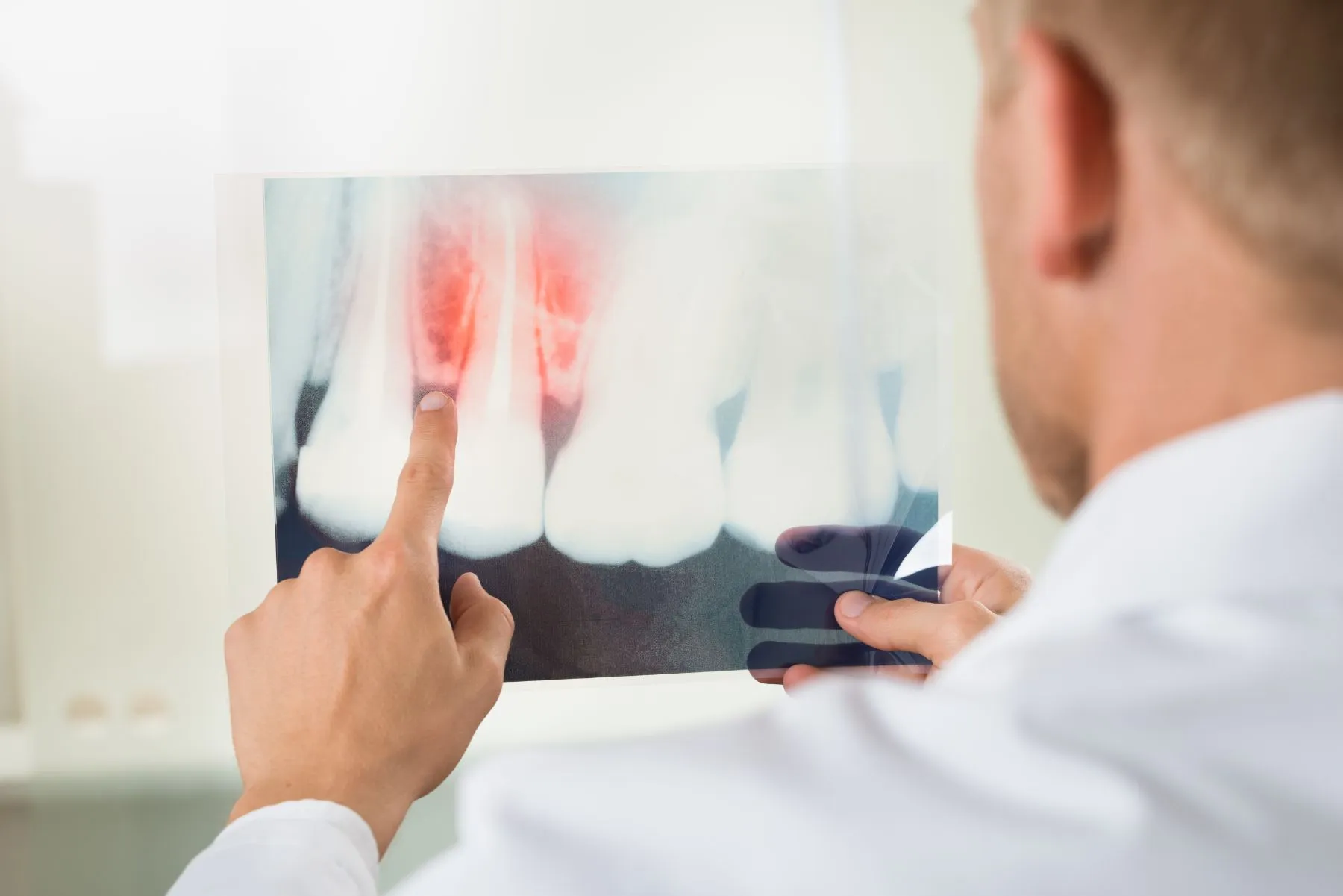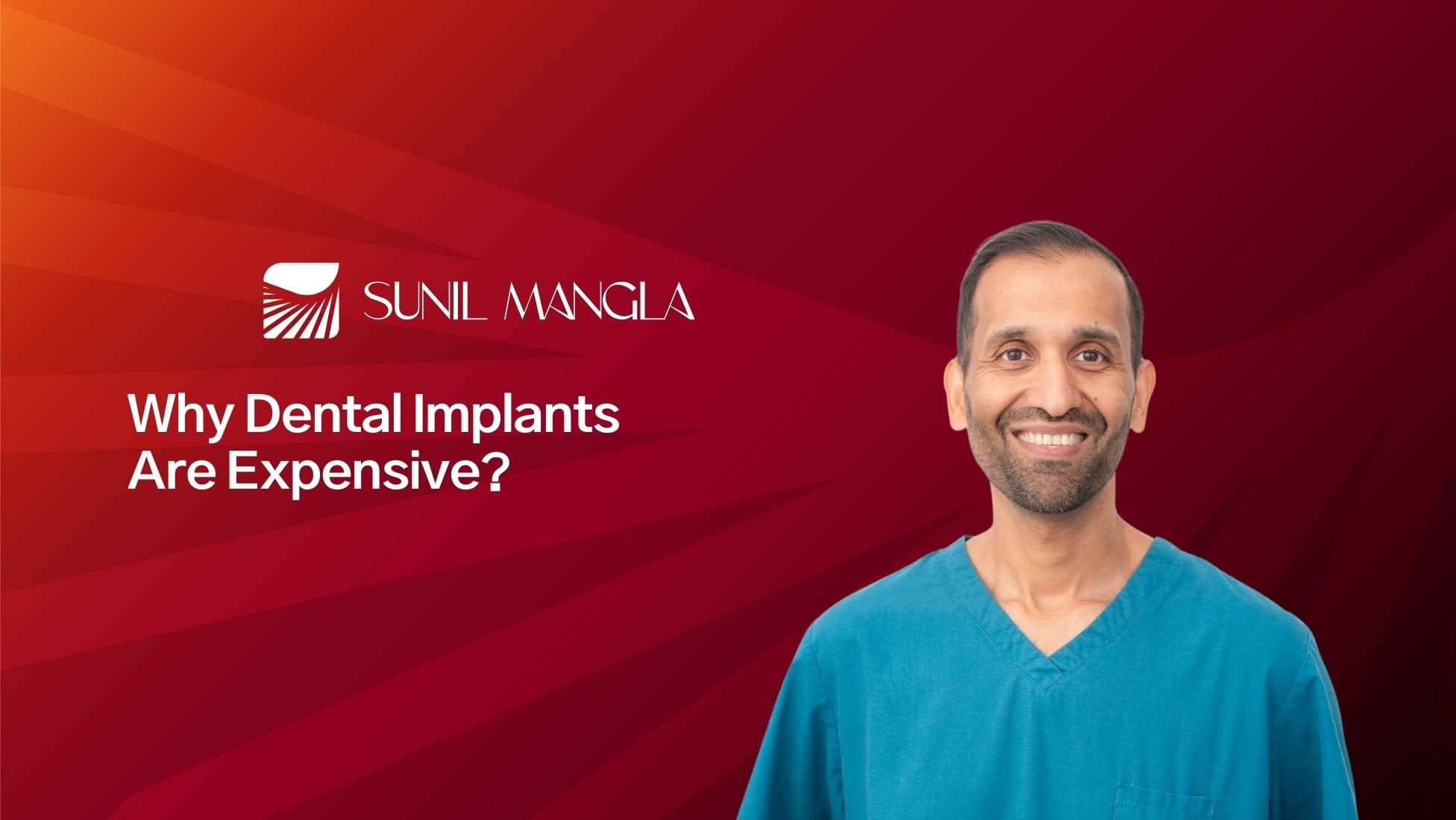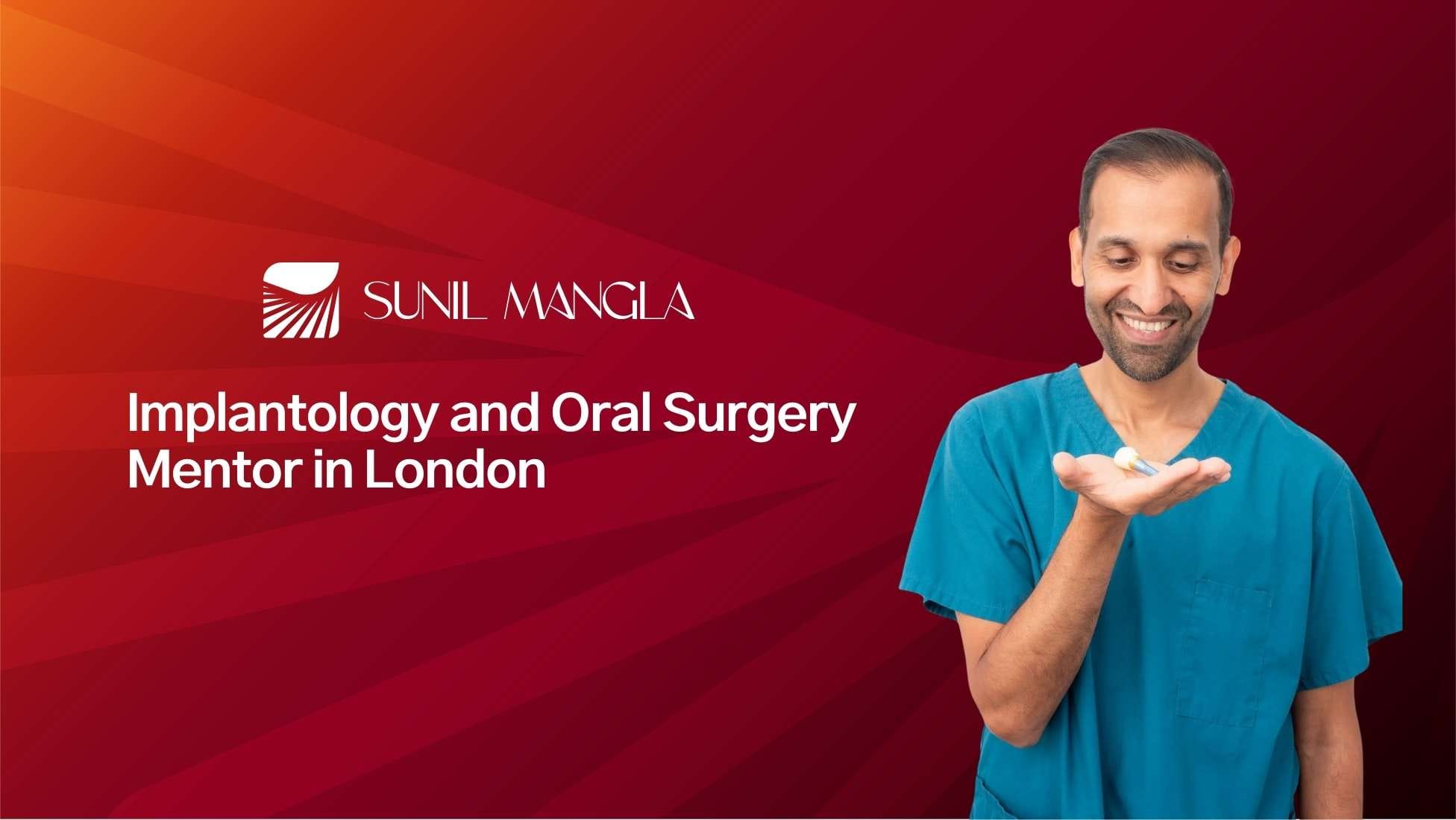
Patients experiencing gum disease often ask a crucial question: “Can you have dental implants with gum disease?” As an implantologist and oral surgeon, Dr. Sunil Mangla frequently encounters patients facing this concern. While gum disease can complicate implant treatment, it doesn’t necessarily exclude you from receiving implants. However, it does require careful assessment, proper treatment, and strategic planning to achieve long-term implant success.
In this comprehensive guide, Dr. Sunil Mangla explains how gum disease affects your eligibility for dental implants, how it can be treated beforehand, and what steps you can take to maximise your chances of a successful implant procedure.
What Is Gum Disease and How Does It Affect Dental Implants?
Gum disease (periodontitis) is an inflammatory condition caused by bacteria accumulating along and beneath the gum line. It can lead to:
- Gum inflammation and recession
- Bone loss and tooth mobility
- Increased risk of tooth loss if untreated
For dental implants to succeed, strong bone and healthy gum tissue are essential. Gum disease weakens these critical foundations, potentially jeopardising implant stability and longevity.
Can You Get Dental Implants If You Have Gum Disease?
The direct answer is typically no, at least not immediately. If you currently have active gum disease, placing dental implants without addressing this condition would significantly reduce the implant’s chance of success. However, it doesn’t mean implants are entirely off-limits.
Dr. Sunil Mangla carefully evaluates each patient, determining the best steps to treat gum disease before proceeding to implants. By effectively managing gum disease, implants can safely be placed at a later stage, achieving excellent results.
Why Is Treating Gum Disease Important Before Implants?
Treating gum disease before receiving implants is crucial because:
- It reduces inflammation and infection, creating a healthy environment for the implants.
- It preserves and enhances bone density, necessary for implant stability.
- It minimises complications during and after implant placement, significantly increasing the chances of long-term success.
- It promotes better overall oral health, benefiting your entire mouth, not just the implant site.
Dr. Sunil Mangla emphasises thorough gum disease management as a vital step in implant treatment planning, ensuring the highest quality outcomes for his patients.
What Treatments Are Available for Gum Disease Before Implants?
Dr. Mangla offers multiple treatments tailored to your specific needs:
- Professional Dental Cleaning: Removing plaque, tartar, and bacteria from gums.
- Scaling and Root Planing: Deep-cleaning under the gum line to eliminate infection and promote gum reattachment.
- Laser Therapy: Minimally invasive technique to eliminate bacterial infections and regenerate healthy gum tissue.
- Bone Grafting Procedures: Rebuilding lost bone structure digitally-guided, when severe gum disease has caused bone deterioration.
- Surgical Intervention: Advanced periodontal surgery to restore gums and bone tissue, if necessary.
Each treatment is carefully selected based on the severity of your gum disease.
How Can You Improve Your Chances for Successful Dental Implants?
To optimise your chances of implant success, Dr. Mangla advises the following steps:
- Maintain Excellent Oral Hygiene: Regular brushing, flossing, and routine dental cleanings are critical.
- Quit Smoking: Smoking impairs healing and increases implant failure risk.
- Regular Check-ups: Follow consistent periodontal check-ups before and after implant placement.
- Follow Post-Treatment Recommendations: Adhere strictly to guidelines provided by Dr. Mangla, including medication and oral hygiene routines.
These proactive steps significantly improve your implant procedure’s predictability and long-term success.
Why Is Aftercare Crucial if You’ve Had Gum Disease?
Proper aftercare becomes even more vital if you have a history of gum disease:
- Regular check-ups to monitor the health of gums around implants.
- Immediate intervention at any signs of inflammation or infection.
- Ongoing professional cleanings to avoid recurrence of gum disease.
Dr. Sunil Mangla emphasizes tailored follow-up plans, ensuring your implants remain stable and healthy over time, safeguarding your investment in your smile.
Conclusion: Can You Have Dental Implants with Gum Disease?
So, can you have dental implants with gum disease? Initially, the answer is usually no, but after appropriate treatment, implants become a highly viable solution. Under the guidance of Dr. Sunil Mangla, gum disease can be effectively managed, setting you on a path towards a successful implant treatment and long-term oral health.
For more information or to schedule your personalised assessment, contact Dr. Mangla through the details below and start your journey to a healthier smile today.
If you’ve experienced gum disease and are considering dental implants, Dr. Sunil Mangla is here to guide you toward the healthiest, safest solution.
Don’t let gum disease prevent you from achieving the smile you deserve.
Contact Dr. Mangla through the form below to schedule your initial consultation today.




